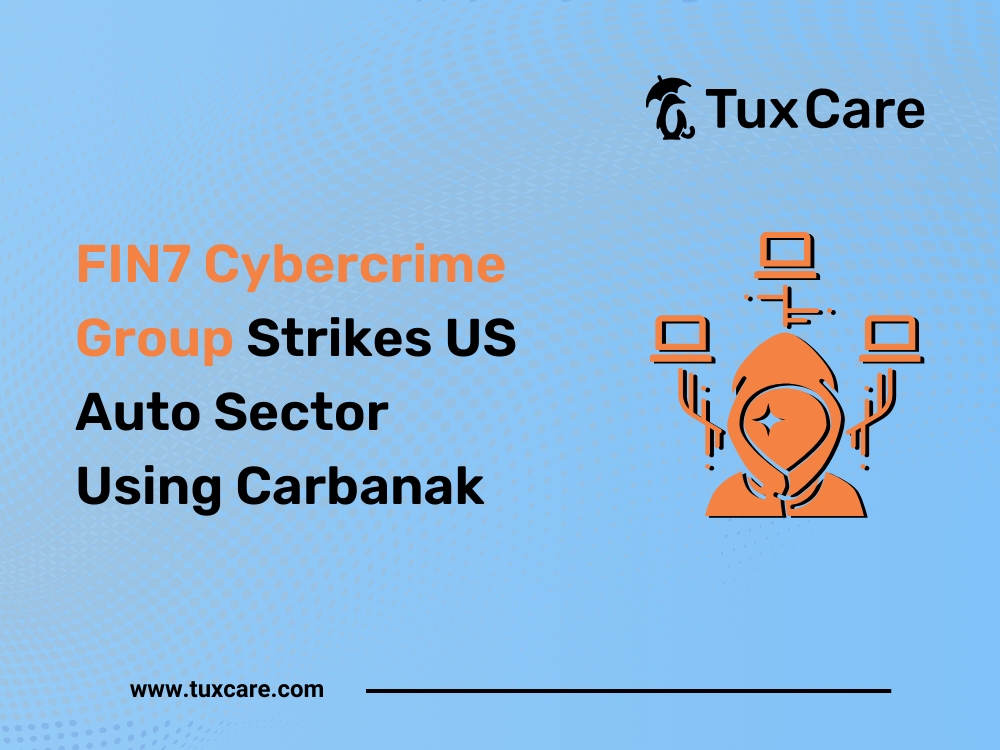FIN7 Cybercrime Group Strikes US Auto Sector Using Carbanak
Recent reports have highlighted that the notorious FIN7 cybercrime group has targeted the U.S. automotive industry through a sophisticated spear-phishing campaign. Employing a familiar weapon, the Carbanak backdoor (also known as Anunak), they aimed to infiltrate systems and compromise sensitive data. This nefarious activity underscores the critical importance of robust cybersecurity measures in safeguarding against such supply chain cyberattacks.
Understanding the Tactics of FIN7 Cybercrime Group
The modus operandi of FIN7 cybercrime group pinpointing employees within the target organization’s IT department who held elevated administrative privileges. By leveraging the allure of a purportedly free IP scanning tool, they lured unsuspecting individuals into unwittingly executing the Anunak backdoor.
Utilizing living-off-the-land binaries, scripts, and libraries (LOLBAS), they established an initial foothold within the network. Originating from Russia, FIN7 malware has operated as an advanced persistent threat (APT) group since 2013. Driven by financial motives, the group initially concentrated its efforts on sectors like retail, restaurants, and hospitality in the United States.
Over time, their targets expanded to include transportation, insurance, and defense industries. Renowned by aliases such as Carbon Spider, ELBRUS, and Sangria Tempest, FIN7 has affiliations with other cybercriminal factions such as GOLD NIAGARA and ALPHV.
Evolution of Tactics – From Masses to Precision
Point-of-Sale (PoS) system attacks pose a significant threat to retail businesses worldwide. In recent years, FIN7 has transitioned from indiscriminate attacks to meticulously orchestrated strikes against high-value targets, a strategy known as big game hunting.
This shift underscores their quest for larger ransom payouts, necessitating thorough reconnaissance and precise targeting. Ransomware serves as their preferred payload, highlighting the criticality of early detection and intervention to mitigate potential damages.
The infiltration strategy employed by FIN7 hinges on meticulously crafted spear-phishing emails, tailored to exploit vulnerabilities within the target organization. In this instance, employees with elevated access privileges were enticed with a counterfeit IP scanning tool, leading them to a malicious URL disguised as a legitimate website.
The subsequent download of a malicious executable facilitated the deployment of Carbanak, signaling the onset of a potentially catastrophic breach. Therefore, car dealership cyber security measures are crucial in protecting customer data and maintaining trust in the automotive industry.
FIN7 Mitigation Strategies
Ensuring the US auto industry security is paramount in safeguarding against cyber threats. To counteract the looming threat posed by entities like FIN7 ransomware, organizations must adopt a proactive stance towards cybersecurity. Implementing measures such as phishing awareness training, multi factor authentication (MFA), and regular software updates can fortify defenses and thwart potential intrusions. Vigilant monitoring for anomalous activities further bolsters resilience against evolving cyber threats.
Attack Attribution and Implications
Attributing the attack to FIN7 is substantiated by distinctive hallmarks present within the malicious payload. Analysis reveals striking similarities to previously documented FIN7 operations, affirming their involvement with a high degree of certainty. Such attribution enables targeted responses and enhances collaborative efforts towards dismantling cybercrime networks.
The ramifications of this targeted assault reverberate throughout the automotive sector, underscoring the vulnerability of critical infrastructure to cyber threats. Heightened awareness and proactive measures are imperative to safeguard against potential disruptions and safeguard sensitive information.
Conclusion
As cyberattacks on auto industry continue to evolve in complexity and sophistication, organizations must remain vigilant and adaptive in their cybersecurity posture. By staying abreast of emerging threats, implementing robust defense mechanisms, and fostering a culture of cybersecurity awareness, entities can mitigate risks and safeguard against potentially devastating breaches.
Collaboration across industry sectors and concerted efforts towards threat intelligence sharing are pivotal in combating the ever-present menace of cybercrime.
The sources for this piece include articles in The Hacker News and The Security Bench.



 Documentation
Documentation Login
Login




